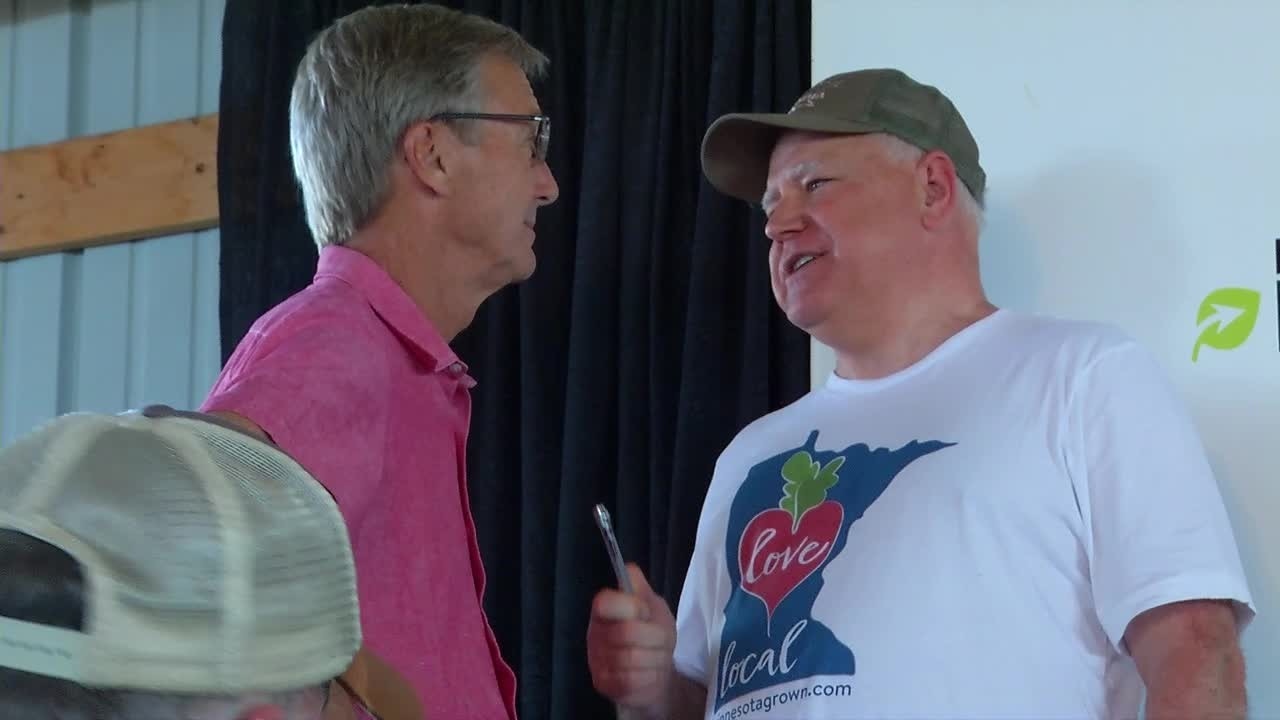Jensen, at cash disadvantage, turns to social media to pressure Walz into more debates
[anvplayer video=”5129046″ station=”998122″]
The power of incumbency is unquestioned in almost any political race, and that’s certainly true in the 2022 Minnesota governor’s race.
Democratic Gov. Tim Walz has almost 10 times as much cash to spend as his Republican challenger, former state Sen. Scott Jensen. And as the incumbent, Walz also has greater latitude to dictate the terms of any debate with Jensen.
So far the two sides have not agreed on any debates to follow their face-to-face meeting in early August.
“Breaking news,” Jensen announced in a video on Twitter this week. “Tim Walz just announced that he’s not going to debate me at the State Fair. … He may be running for governor, but the more important question is what is he running from?”
The Walz campaign did not respond to an email on Tuesday, but when meeting with reporters immediately after the Farmfest debate Walz said he will participate in more debates.

Gov. Tim Walz, right, talks with gubernatorial candidate Dr. Scott Jensen before they take the debate stage Aug. 3, 2022, at Farmfest in Morgan, Minnesota. (KSTP)
“We always do,” he said. “I think the process is we start working through it, and they’ll get the next couple up on the schedule.”
Jensen says he thinks there should be debates like the Farmfest debate every two weeks so Minnesotans can learn more about the two candidates.
“We showed we can have a conversation,” he told reporters. “I think Minnesotans want to have a lot more of those.”
Of course, Jensen not only wants more of those, but he also needs more debates because he’s at a huge financial disadvantage. As of the last July reporting period, Walz had nearly $5 million in cash available, compared to about $581,000 for Jensen.
“I think you’ll see Jensen, who has fewer resources, has already been using social media very effectively in his messaging because it’s a lot less expensive,” says political analyst Steven Schier of Carleton College.
That’s one reason Jensen took to social media to complain about Walz being slow to agree to more debates.
Schier says Jensen will have to do more of that while Walz appears to be employing what’s commonly known as a “Rose Garden” strategy.
“Simply governing and trying to ignore their opponent,” Schier says of the strategy often used by incumbents. “Tim Walz is trying to do something similar with that and leave the real battle of the campaign to TV ads.”
On that score, Walz has a huge advantage because TV ads are expensive and he has a lot of money. So does a special interest group that backs him, the Alliance for a Better Minnesota, which is airing a seven-figure TV ad campaign attacking Jensen for his stance on abortion.